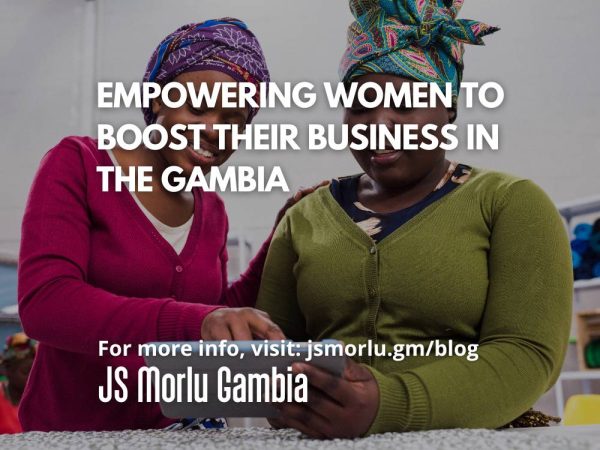From struggling to scrape by to successful business woman, Fatou Mbaye’s life has made a dramatic u-turn. “Life used to be difficult. I didn’t have any skills, or any meaningful trade. I farmed millet and groundnut, but the rains are erratic. Often the harvest wasn’t enough,” explains Fatou. “I have 5 children and we would manage with the little we had. But it was a constant struggle to get by and meet even our basic needs.”
Fatou’s story isn’t uncommon. In the Gambia’s Central Southern River Region, many people rely on a single, often seasonal, source of income. Year after year, they run the risk of harvests failing and their income drying up.
Working with Action Aid, the European Union is supporting women like Fatou become more economically secure and independent through a project designed to retrain and upskill 1500 women in the region. Fatou took part in a skills training on tie and dye, batik and soap making before being selected to participate in a trade fair. “That’s when my business really took off. It was the biggest sales experience I’ve had in my life as a businesswoman. It gave me confidence to get my products out to people. I started going to weekly markets in and around my community,” she says. Fatou has managed to establish her business beyond her immediate community, with regular buyers in other parts of the country.

I want to inspire other women to do the same, so that they can learn new skills and feed their families too, that’s why I am training them how to tie dye textiles to sell themselves.
The project also provides cash transfers to a number of women to establish and expand their businesses. It was following one of these cash transfers that Fatou’s business really took off. “My profits are starting to grow,” she says. “Now I have my own table – before I had to go to another village to use the table there. But now I have all the materials I need to work.”
Fatou’s story is one of success. She’s built her business and life’s no longer the struggle it once was. “Now I’m making enough money to feed my family and save for the future. I’m not struggling anymore,” says Fatou proudly.
But her ambition doesn’t stop there. “I want to inspire other women to do the same, so that they can learn new skills and feed their families too,” she says with determination. “That’s why I am training them how to tie dye textiles to sell themselves.”
Original Source: European Commission
